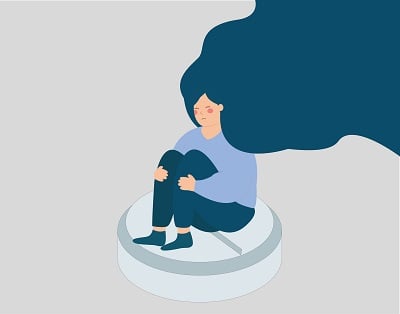This Just In: Antidepressants Don’t Work Anymore
This Just In: Antidepressants Don’t Work Anymore

Please note that this is an opinion piece by an ADAA colleague member
“So accentuated has been the feeling of the sense of well-being, that disciplinary measures have been necessary.”
That comment, in a 1952 report of a clinical trial of a new tuberculosis drug, reports the earliest observation of a startling antidepressant effect of a medicine. The subjects of the trial were selected because their tuberculosis was so advanced as to be hopeless… And yet, those dying patients felt so good after taking the experimental drug that they “had to be disciplined.” Soon after, another drug, developed as an antihistamine, would also show a definite antidepressant effect. Those two drugs, iproniazid and imipramine, became the first traditional antidepressants.
Both those drugs increase signaling power of certain brain chemicals – monoamine neurotransmitters – including dopamine, norepinephrine, and serotonin. In the 1960s, with that in mind, two physicians proposed competing theories of what causes depression. The first proposed that depression is caused by a lack of dopamine and norepinephrine, and mania by their excess. The other theory fell along the same lines, but featured serotonin as the chemical involved. Over time, the serotonin version won out, and by the 1990s, new drugs, including selective serotonin reuptake inhibitors (SSRIs) and serotonin-norepinephrine reuptake inhibitors (SNRI) came on the market and were also shown to be effective against depression.
The monoamine theories of depression, however, did not do so well. In the early 1980s, scientists demonstrated that SSRIs and other such drugs are active in the brain within hours, but still take weeks for antidepressant effect. Further, artificially depleting serotonin or norepinephrine levels in healthy volunteers doesn’t cause depression. The actions of antidepressant medications – increasing monoamine signaling – is usually effective in treating depression, but the reverse isn’t true. Depression isn’t caused by a serotonin or norepinephrine deficiency.
And so, the conclusion of a study published in Molecular Psychiatry in July 2022 – that there is “no support for the hypothesis that depression is caused by lowered serotonin activity or concentrations” – is not surprising, or even new. What is surprising is that popular media is interpreting the study’s conclusions to say that if serotonin is not the cause of depression, then antidepressants don’t work. Huh?
From the early, completely unexpected findings of antidepressant effects of drugs developed for other purposes, to more modern clinical and community trials of SSRIs and SNRIs, the effectiveness of these drugs in treating depression is a demonstrated fact. The collapse of a theory doesn’t change observed results at all.
Last year, I published a book about the science of depression, and it begins with the story of the discovery of antidepressants because they were important in how science and medicine perceive the illness. Even though the monoamine theory of depression collapsed (long ago), it promoted a new way to look at depression: as an illness, not an attitude.
I offer this bit of history to help arm the people who encounter depressed individuals seeking treatment with the fuller story of how the serotonin theory relates to antidepressant medications. Further, I am making the electronic version of my book, Fighting Chance, available for free to a defined community on the front lines of that discussion: psychiatric nurses. If you are a psychiatric nurse, in training or in practice, claim your free e-book through the contact form on my web site.
Sarah Zabel is the author of Fighting Chance: How Unexpected Observations and Unintended Outcomes Shape the Science and Treatment of Depression. Read more at www.sarahzabel.com.












